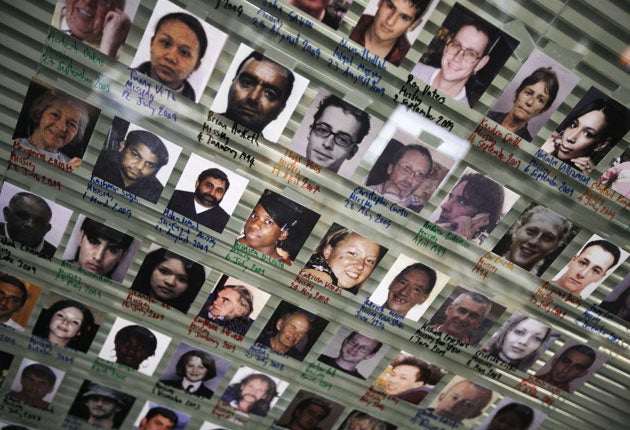Missing persons services at risk as funding is slashed
National charity to lose all its government cash as police admit their work on the issue will also be hit

Your support helps us to tell the story
From reproductive rights to climate change to Big Tech, The Independent is on the ground when the story is developing. Whether it's investigating the financials of Elon Musk's pro-Trump PAC or producing our latest documentary, 'The A Word', which shines a light on the American women fighting for reproductive rights, we know how important it is to parse out the facts from the messaging.
At such a critical moment in US history, we need reporters on the ground. Your donation allows us to keep sending journalists to speak to both sides of the story.
The Independent is trusted by Americans across the entire political spectrum. And unlike many other quality news outlets, we choose not to lock Americans out of our reporting and analysis with paywalls. We believe quality journalism should be available to everyone, paid for by those who can afford it.
Your support makes all the difference.George Osborne's multibillion-pound spending cuts threaten to sever a national "lifeline" that helps tens of thousands of missing people and the families they leave behind.
Britain's biggest missing persons charity has been plunged into crisis after ministers confirmed it will lose all of its £500,000 government funding. Missing People, which helps more than 100,000 callers a year, warns that the cut will cause "catastrophic" damage to its work supporting "mispers", runaways and their families.
And MPs have warned that efforts to find the 275,000 Britons who disappear every year will be further hindered by a threat to the sole state body focused exclusively on locating missing people. The UK Missing Persons Bureau is part of the National Police Improvement Agency (NPIA), one of the organisations earmarked for closure amid the cull of quangos last month. Ministers admit they have not decided where – or whether – the bureau's work will be continued.
The confusion has also cast a shadow over the chances of identifying the bodies of almost 1,000 people found in the UK over the past 50 years.
The "dismantling of the missing persons infrastructure" has provoked concern for a function that has traditionally been regarded as a low police priority. The Police Federation last night confirmed that the search for missing people would inevitably be hit by a reordering of priorities in the face of cuts.
The warnings come only days after the parents of Madeleine McCann complained that the British authorities were not helping them to find their daughter, who disappeared from a Portuguese resort in 2007.
"Withdrawing funding from the only 24-hour missing persons charity without saying how they are going to invest in the future has made a precarious situation one that threatens to be catastrophic," said Martin Houghton-Brown, Missing People's chief executive.
The charity, whose website carries thousands of photographs and case details, claims that it "directly reconnected" 450 UK families with a missing relative last year, while "countless more" were indirectly helped.
An Independent on Sunday investigation last year found the charity's volunteers and staff were struggling to cope. It was demanding that a government department take responsibility for the issue, more co-operation between statutory agencies and, crucially, more resources. But it is now set to lose a £350,000 annual grant from the Home Office and £150,000 from the Department for Education, which helps to maintain a runaways helpline.
Missing People's staff have attempted to play down the damage presented by the cuts, partly due to fears that it could undermine the confidence of the charity's private backers.
But MPs maintain that cutting more than £80bn from Government spending over four years threatens to close both organisations. Labour MP Ann Coffey, chair of the All-Party Parliamentary Group for Runaway and Missing Children and Adults, said: "The very core of the front-line missing persons services is under threat."
She added: "Instead of removing the missing persons infrastructure, we must maintain investment and underpin it with new legislation that supports existing services and does much-needed filling in of gaps."
A Home Office spokeswoman said last night: "We are looking at what improvements can be made if existing agencies work together and share resources more effectively."
And a spokesman for the Department for Education said: "The voluntary sector cannot be immune from reductions in public expenditure."
Join our commenting forum
Join thought-provoking conversations, follow other Independent readers and see their replies
Comments